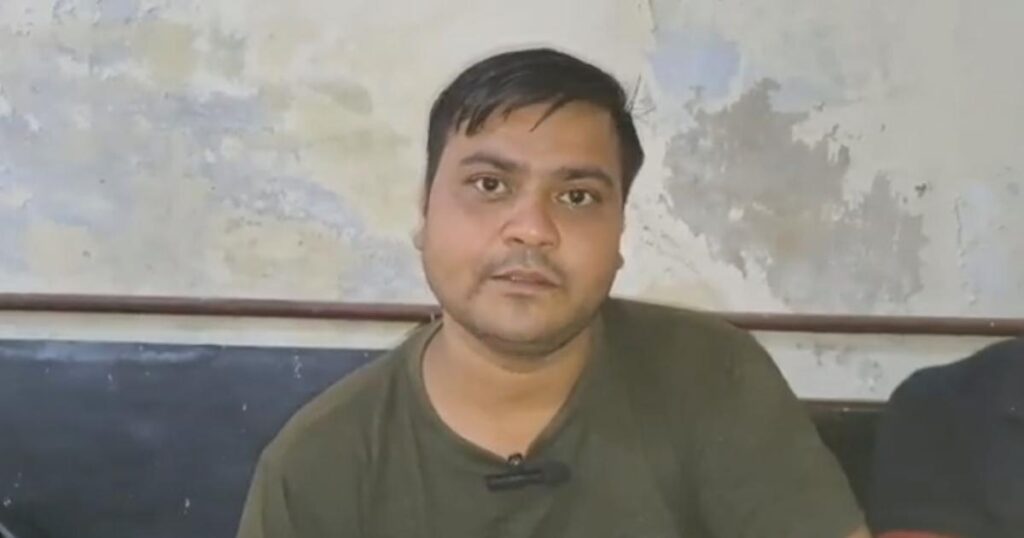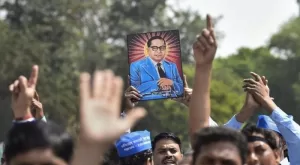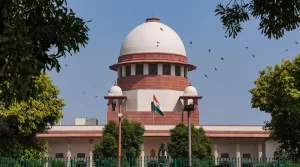The death by suicide of Mohit Yadav has moved many Indians.
A bus conductor employed by the state government of Uttar Pradesh, Yadav was removed from his job in June and was reported to have been depressed because of that. His bosses terminated his contract after a passenger complained that Yadav had stopped his bus to allow two passengers to offer namaz on June 3.
One of the passengers noticed two Muslims praying while the bus waited for them. He filmed them and lodged a complaint against Yadav for interrupting the bus journey, causing inconvenience to other passengers. The authorities acted promptly.
Yadav had stopped the vehicle when a few passengers asked to use the toilet. It so happened that two Muslim passengers had asked him if they could stop to offer namaz, which would take a few minutes. Yadav thought that since the bus was stopped for a toilet break, that same time could also be used to accommodate the request for namaz.
In total, the bus halted for about three minutes, Yadav recounted. His description of events was supported by KP Singh, the bus driver. He was also suspended. After losing his job, Yadav, the sole earner of the family, was under tremendous stress both mentally and financially.
A public bus waited for three minutes. Some passengers used the toilet and some Muslims said their prayers. A man lost his job and heart.
Underlying the charge is the suggestion that that Yadav used collective public time, which is secular, for a religious act by two Muslims – which was communal.
Buses can be stopped for secular reasons, such as using the toilet. But a minute of the public time cannot be wasted to satisfy the religious needs of Muslims.
We cannot establish a direct link between his punishment and his death by suicide. A minister in Uttar Pradesh government asked why Yadav, if he had been so aggrieved by his removal, had not ended his life just after the firing order. Why had he waited for so long?
Yadav could not have been ignorant about the social and political atmosphere in which namaz had become an offence. Around India, Muslims have been harrassed and even arrested for offering namaz publicly. Despite this, Yadav decided to stop the bus.
Acts of accommodation such as the one undertaken by Yadav are what all of us need to make towards each other in the interests of national unity. But in the India of our times, this has become unthinkable. The state refuses to make accommodations for minorities, even though this is one of the fundamental elements of any democracy.
Denying minorities their rights and well-being is an act symbolic violence. Such an act indicates who is superior in a society and facilities the segregation of communities. Such symbolic violence shapes and imposes dominant, majoritarian ideals on the minority.
Mohit Yadav’s fate warns us that Muslims and Christians have no right to public expression. They will not be accommodated, whether they want to wear hijabs to college or to pray in public. According to this logic, namaz is expression of religious emotion but the state is an entity free of all emotions.
We must ask the man who complained about Yadav about his reaction to roads in North India being closed for the annual Kanwar Yatra. It has become routine for the state to go out of its way to facilitate the expression of religious emotion by Hindus.
The news of Mohit Yadav’s death came at the same time as reports that prayers were held in Assam’s Raha for the long life of Chief Minister Himanta Biswa Sarma to thank him for ridding the constituencies of minorities.
It indicated that the spirit of accommodation towards Muslims and Christians is lacking not just in the government but among many ordinary Indians too. In India today, even an act of friendship and fraternity towards Muslims has become an act of deviance and a crime. This is far from the spirit foreseen by the founders of our constitutional republic.
(Apoorvanand teaches Hindi at Delhi University. Suraj Gogoi is a sociologist interested in social, political and ethical life in South Asia. Courtesy: Scroll.in.)




